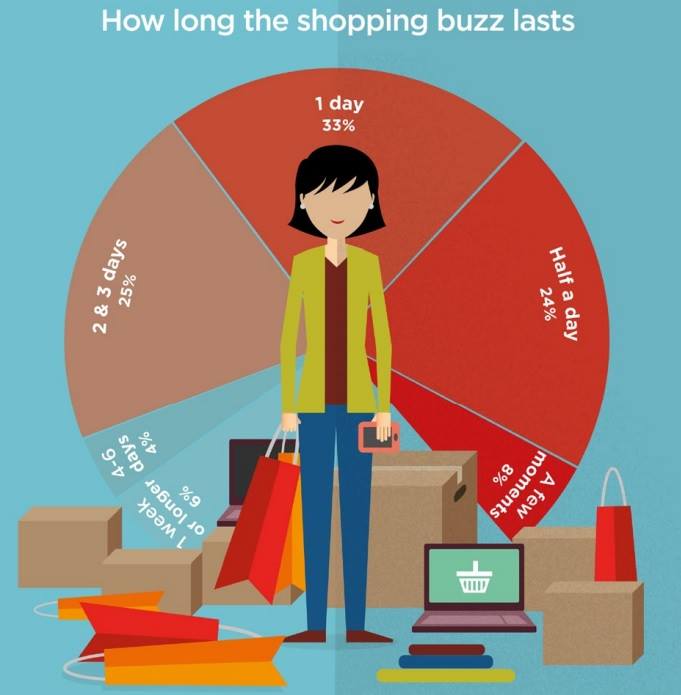Greenpeace report: Fashion overconsumption, an increasingly widespread phenomenon in Asia and Europe
A recent study conducted in Asia and Europe reveals a concerning phenomenon: the number of those that buy more clothes, shoes and accessories than they actually need keeps growing.
”Consumers are no longer shopping because they need something. On the contrary: younger people in particular shop despite already having too much, longing for fulfilment and encouraged by social media and the ease of online shopping,” the report published by Greenpeace shows.
”Overconsumption of fashion is now deeply entrenched in our everyday culture, both in old European economies and in emerging ones such as China,” the cited document shows.
Sales are the reason that 72% of Italians blame for overconsumption. Sales are also blamed by 64% of the Chinese, 62$ of respondents in Hong Kong, 54% of those in Taiwan and 52% of Germans.
On the other hand, over 70% of the Chinese admit that overconsumption is also caused by what they see on social media. A similar explanation is also brought by 66% of respondents in Hong Kong and 55% of those in Taiwan.

Nearly half of Chinese consumers buy more than they can afford, while 40% do compulsive shopping several times a week, according to the aforementioned study.
68% of respondents in Hong Kong confessed having more clothes than they actually need, while the percentage was 60% in Germany and China, 54% in Taiwan and 51% in Italy.
Moreover, 57% of respondents in Hong Kong admitted they have more shoes than they need. A similar response was also given by 50% of the Germans, 42% of the Taiwanese, 42% of the Chinese and 39% of the Italians.

Regarding the accessories, though, the Chinese came out worst, with 53% of them admitting they have more such objects than they actually need. They are followed by respondents from Hong Kong – 49%, Germany – 45%, Italy – 44% and Taiwan – 41%.
The enthusiasm offered by the acquisition of new products does not last too long either. Nearly half of the respondents in Germany, Taiwan, Hong Kong and China declared that the ”shopping buzz” goes away in less than a day. More specifically, nearly 60% of Germans confess they are tired or even exhausted after a shopping session.

The report also draws attention upon the ”fast fashion” phenomenon, developed by the world’s largest retailers, such as Zara and H&M. The production of clothes doubled from the 2000s until 2014.
Therefore, if in 2002, clothes sales on a global level rose to $1 trillion, while in 2015, the sales reached $1,8 trillion.
This context leads to the declarations made by Eileen Fisher representatives, who emphasised that ”clothing industry is the second largest polluter in the world, after the oil industry”.
The carbon footprint of the fashion industry is huge, both because of the pollutants and because of the numerous natural resources used throughout the production chain.
Equally damaging, the ”fast fashion” phenomenon is ”maintained” by the workforce in poor countries, such as Bangladesh, Vietnam or India. Among the exploited workers are also children, according to a report made by International Labour Organization (ILO).
“Forced and child labour is alarmingly common in the cotton industry. Sometimes rural poverty means children must work long hours to support their families. Children as young as five years old can be recruited and sometimes forced to work in cotton fields or ginning factories (where raw cotton is processed) for little or no pay. In many cases, this is at the expense of their education. They may endure terrible conditions including exposure to hazardous pesticides, physical and sexual abuse and long hours. Children can be left exhausted and in poor health after weeks of gruelling labour,”, according to the World Vision Foundation.